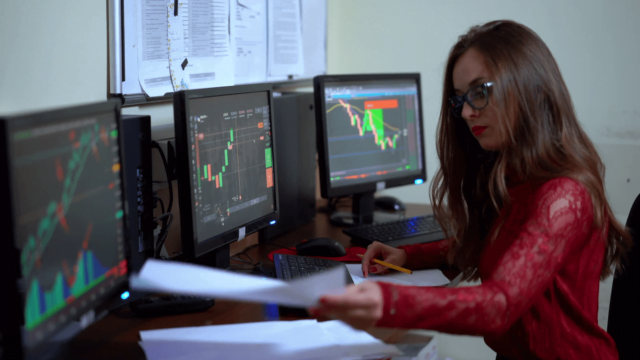It should be obvious that the more knowledge you have around your field of activity, the better you will be at pursuing it. If you are a financial trader, then studying finance and economics can only be beneficial.
The difference between the two disciplines can be confusing for outsiders, but they remain distinct, if increasingly interrelated.
While many may see finance as being more practical and relevant when it comes to trading, the study of economics arguably brings even more rewards.
Finance and economics
Finance can be divided into public finance, corporate finance and personal finance. It is broadly speaking the study of money: what it is, how it behaves, and how to manage it.
Economics on the other hand looks at what underlies money: the production, consumption and distribution of goods and services and how economies based on these things work.
The bigger picture
Studying economics makes it easier for you to understand the big picture. National and international monetary policy, interest rates, inflation, income levels and gross domestic product are all areas that can be understood via the social science of economics.
These in turn influence how individual consumers, companies and ultimately markets behave. Understanding economics allows you to understand the underlying flow that will let you stay one step ahead when it comes to financial trading.
Currency markets
The interest rate policy of different countries is one of the biggest factors affecting international currency markets. When using a forex broker such as OctaFX, traders need to be able to predict the changing relative value of different currencies.
Doing this effectively requires reading and quickly digesting the many economic reports that are published every week. Traders need to be able to understand and analyse these reports and act upon their conclusions. Without a thorough grasp of economics, it is virtually impossible to do this effectively.
Stocks and shares
While currency is most obviously affected by economic movements, the equity market is actually just as dependent. This is why most investment banks and financial consultancies employ economists to forecast market conditions and create projections based on their analysis.
Changes in national income and interest rates reflect the health of a nation’s economy and impact directly upon consumer spending. Companies prosper or suffer as a result, and the value of their stock will rise or fall accordingly.
Read More: Snapdeal Says Its Revenue Jumped By 73%, We Wonder How
As above, so below
The study of economics is divided into two branches: macroeconomics and microeconomics. In fact, they both amount to studying the same thing, but from different ends of the telescope.
Microeconomics looks at how the choices made by people and companies can affect the bigger regional, national and international economy.
Macroeconomics is concerned with how those bigger economic systems work, and ultimately how they influence the choices of people and companies.
In both cases, economists are looking at changing conditions, and how producers and consumers react to them. The knock-on effect of any action can be dramatic, and in tracing these effects, economic theory directly influences government policymaking, and also market trading.
Taking a step back
It’s possible to be a successful trader simply by looking at recent market trends and acting solely upon what the figures and graphs tell you.
However, the real financial wizards are those who can seemingly see what’s coming well before it’s reflected in rising or falling asset prices.
The trick to being able to do this is taking a step back and using a thorough understanding of economics to see how different events, conditions and trends may be connected.
Predicting and understanding the likely consequences of government policy and consumer behaviour allows economically aware traders to have a good idea of how the market is likely to react.
If you want to work as a trader for a large investment house, then a degree or post-graduate course in economics is one of the best ways in. It’s true that these days, there are computer algorithms that can do much of this predictive work for you.
However, there’s no substitute for well-honed economic instincts, or for having a genuine understanding of why the computers are recommending a certain course of action.
Knowing about economics will certainly make trading a lot easier. You’ll be able to understand the implications of financial news faster and more thoroughly, and you’ll be able to trade with greater confidence and more chance of success.
An economics degree isn’t absolutely essential if you want to get hired by a large investment company, but it will certainly help. Economics lets you understand why the markets behave as they do, and this has to be a good thing.
Image Credits: Google Images
Other Recommendations:
How Shell Companies Succeed In Guarding Obscene Amount Of Money From Taxes







































Thank you for the post.